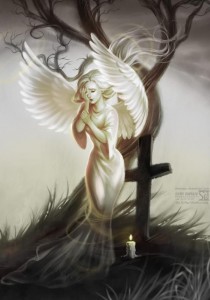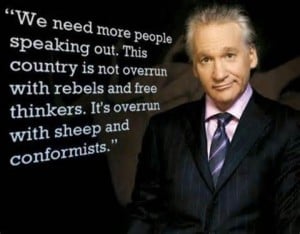Ah, Valentine’s Day. It evokes annoyance, angst, and sometimes the warm and fuzzies. It’s supposed to be about celebrating love, but the definitions of that vary wildly.
For instance, the movie based on the ‘workplace BDSM’ (bondage/discipline, dominance/submission) book Fifty Shades of Grey opens this weekend in marketing tandem with the Hallmark holiday. An awkward, unconfident 21-year-old college senior (Ana) loses her virginity to a swaggering, wealthy entrepreneur (Christian Grey) who only does contractual sexual relationships with no romantic elements and a literal signed agreement that the female will submit to his extensive rules and control.
Ok, I haven’t read the book (you can sleep when you’re dead). But movie previews portray Ana as mostly drawn by his lavish gifts, helicopter rides, fancy penthouse, and alpha-male social and economic power. Self-doubt and confusion erupts when Christian spanks her and then takes her to meet his parents and then reminds her she still has to sign a non-disclosure form. She finally asks him to punish her and he beats her with a belt. I’ll leave it there so I won’t spoil the ending (which I Googled). Let’s just say that, at least in the book’s plot summary, it is conflicted.
There is an app that goes along with the movie promotion where women can “intern” at Grey Enterprises and go through a series of tasks and levels in hopes of meeting the CEO Christian Grey and getting the privilege of submitting to his mental and sexual dominance. Again, I haven’t engaged in the app, but it sounds like a fabulously disastrous simulation for young women entering the workforce out of college: give up any semblance of personal power and dignity you have and have humiliating sex with none other than the owner of the company you work for at an entry level position! 
To each her own when it comes to sexual preferences and pursuit of self-knowledge within mutually agreed upon experiences. Women should be empowered in their relationships and own their sexuality without shame, without performing for male preference, or being stunted and infantilized by male religious rules and expectations. But the moral of the story is that love is confusing.
Which is why it has to start with the self. How about a day to honor that relationship? It is the missing link in mutually fulfilling erotic and romantic endeavors, in healthy friendships and family ties, and, importantly, in our spiritual seeking of God.
Women particularly tend to struggle with the love of self, because we are socialized to doubt ourselves, compare ourselves, harshly judge ourselves, and, of course, either submit to a social structure built on male values, male experiences, male assessment of history, and male vision of the future or push against it to the point of exhaustion with some degree of success that also comes at a cost. This is true intellectually, emotionally, physically, and spiritually.
In our religious lives and faith practices, this presents a problem. Because here is the truth: in order to fully believe in God, we must also believe in ourselves. In order to believe in a God who loves us unconditionally and completely, we must be able to love ourselves completely. In order to believe in a God who bestows us with potential, purpose, dignity and authority, we must also deeply know without doubt that we possess these things. In order to follow Jesus, we must develop our personal agency and our ability to assert it. We have to believe we were born with the capability to steer our experiences and find our own power and paths through the world. We have to know we have what it takes. We have to believe our contribution is worthy and our deepest, most personal offerings are accepted as valuable. We must believe in a God who believes in us too.
Traditionally, we women are taught to love and trust God with all our hearts and minds without being taught and allowed to equally love and trust ourselves. When we cannot–because of religious and social male dominance, and guilt and shame over religious and cultural portrayals of women (be it unrealistic biblical submission and modesty, or the oversexed and overexposed cover of Sports Illustrated’s swimsuit edition)–inevitably, the equation of relationship with God breaks down. We let the world beat us up. We beat ourselves up.
We are confused and conflicted and cannot bring our confident, whole selves to our relationships. Because of this dislocation and frustration, we miss true revelations of who we are, who God is, and what must be done in the world. We fail to hear, believe and learn from that still, small voice inside ourselves. We listen to every other voice instead. And, just because they are loud, male, and authoritative, does not mean they are speaking our truth, or any truth at all. Truth comes only from real love.

The following excerpt from The Thunder: Perfect Mind reminds me of the confusion women experience in both worldly love and spiritual love. The scripture was discovered in 1945 in the caves of Nag Hammadi, Egypt, along with fifty-one other ancient documents. It was originally composed in the Coptic language, indicating it is most likely of Egyptian origin, and is dated between the first century BCE and the third century CE.
The author is unknown, and the feminine voice and experience it relays is probably why is not referred to in other ancient literature and was left out of the New Testament canon. This Valentine’s day, it can be used as a meditation and prayer about the most important love there is to cultivate and celebrate: self love. What does this text evoke for you?
Do not be ignorant of me at any place or any time…For I am the first and the last.
I am she who is honored and she who is mocked / I am the whore and the holy woman
I am the wife and the virgin / I am the mother and the daughter
I am the limbs of my mother… I am a sterile woman and she who has many children
I am she whose wedding is extravagant / and I didn’t have a husband… I
am the idea infinitely recalled / I am the voice with countless sounds…
I am both awareness and obliviousness / I am humiliation and pride
I am without shame, I am ashamed… Do not be arrogant to me when I am thrown to the ground…
Do not laugh at me in the lowest places Do not throw me down among those slaughtered viciously…
In my weakness do not strip me bare / Do not be afraid of my power…
I am she who exists in all fears and in trembling boldness I am she who is timid… I am witless and I am wise…
Why do you curse me and revere me? … I…of the heart…of the natures… control and the uncontrollable
I am the coming together and the falling apart / I am the enduring and the disintegration…
I am judgment and acquittal… I am she they call truth, and violation
You honor me…and then you whisper against me…
I am what anyone can hear but no one can say… I am what everyone can hear and no one can say…
(translation from A New New Testament edited by Hal Taussig)












